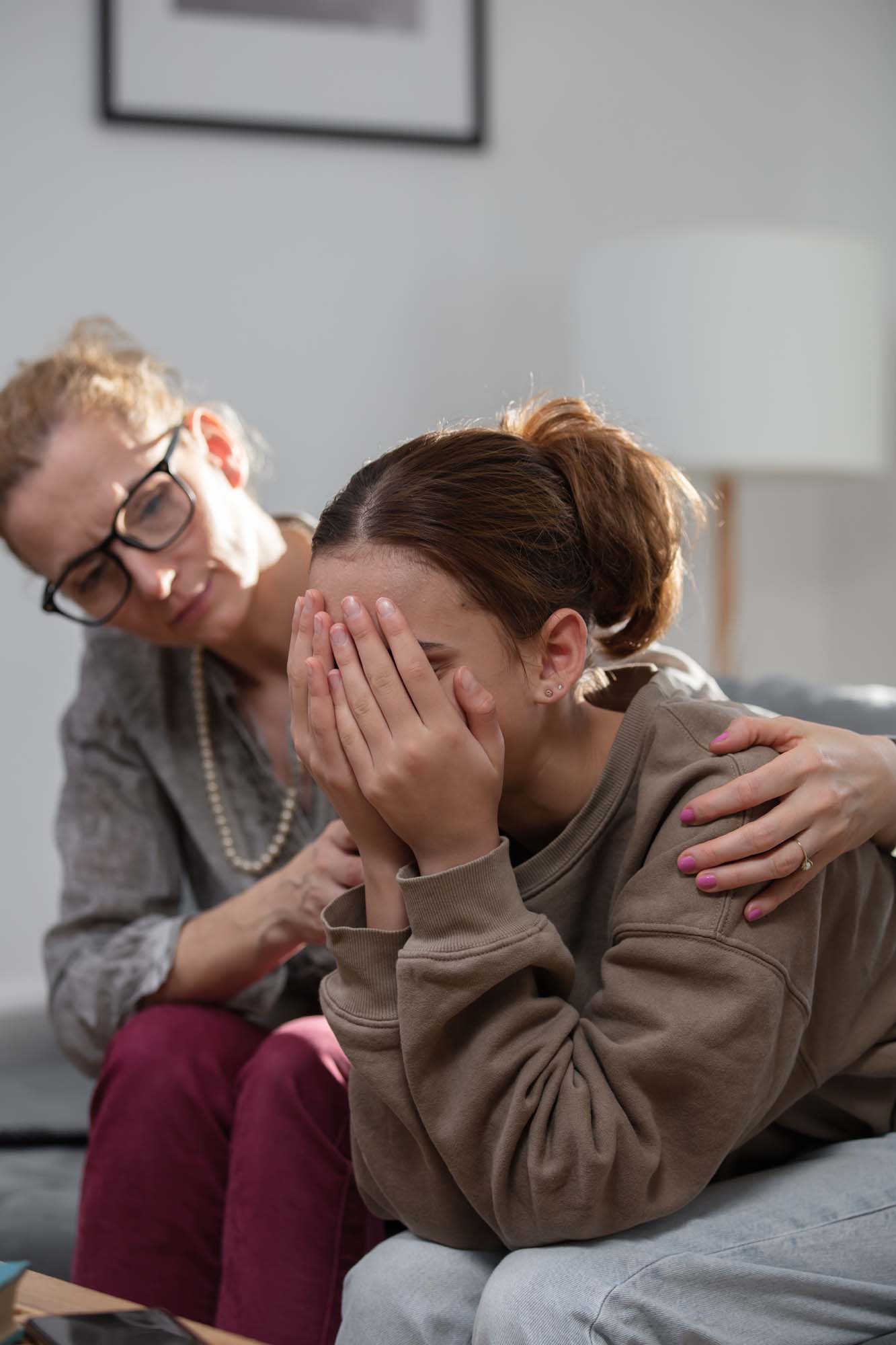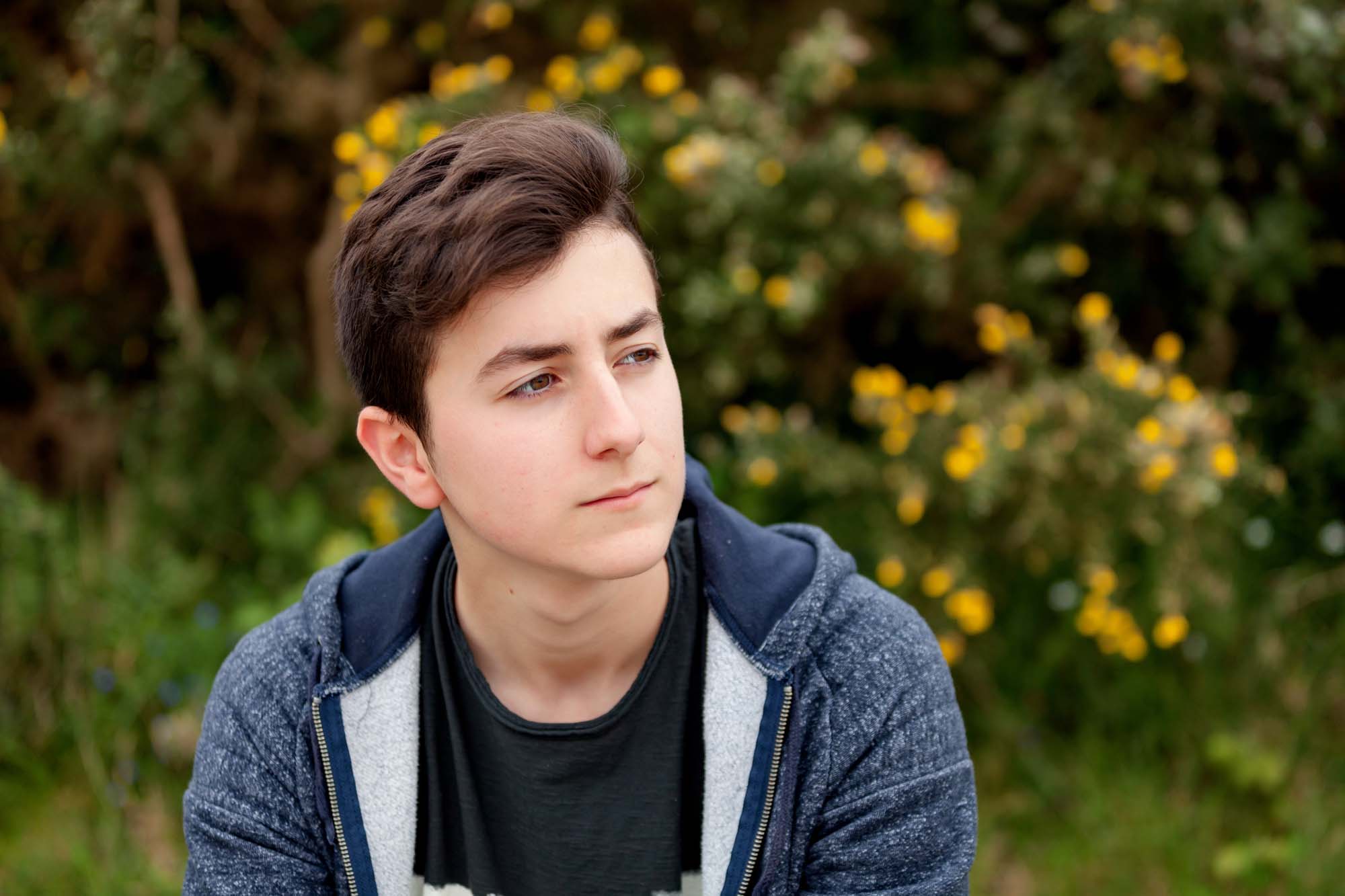Teen Anxiety & Panic Attacks
Watching your teen struggle with anxiety or panic attacks can be overwhelming and heartbreaking—but you’re not alone, and help is available. At Build Bright Care Group, we’re here to help you understand what your child is going through—and more importantly, how they can begin to heal. Based in Los Angeles, California, our residential treatment program offers specialized support for adolescents struggling with anxiety disorders, combining clinical excellence with compassionate, personalized care tailored to your teen’s unique needs.
Find out if your insurance will cover the cost of treatment.
Teen Anxiety Treatment in Los Angeles, California
Understanding and Supporting Your Teen Through Anxiety
As parents, recognizing the depth and breadth of teen anxiety is the first step in guiding your child through this turbulent time. Adolescence is a pivotal chapter in life, marked by growth, learning, and discovery. However, for some teens, this period is overshadowed by the challenge of anxiety disorders. These mental health conditions extend beyond typical teenage worries, embedding themselves into the very fabric of daily life with persistent and excessive fear. As a parent, your support is invaluable. Open communication, patience, and a non-judgmental approach are key. Encourage your teen to share their feelings, and actively listen to their concerns. Educate yourself about anxiety and its treatments and work together to find the best path forward.
What Are the Typical Symptoms of Anxiety in Teens?
Anxiety symptoms in teenagers can manifest in various ways, and they may differ from person to person. However, some typical symptoms of anxiety in teens include:
Excessive Worrying:
Irritability:
Difficulty Concentrating:
Physical Symptoms:
Avoidance Behavior:
Sleep Disturbances:
Changes in Appetite:
Social Withdrawal:
Perfectionism:
Panic Attacks:
Excessive Self-Consciousness:
It’s important for parents, educators, and healthcare professionals to recognize the signs of anxiety in teenagers, provide appropriate support, and interventions to help them manage their symptoms effectively. Early intervention and treatment can significantly reduce the negative effects and risks associated with anxiety in teens.
Types of Anxiety Disorders in Teens Include:

Generalized Anxiety Disorder
Teens with GAD often experience persistent worry and anxiety about various aspects of life, such as school, family, and health. This constant apprehension can lead to difficulty concentrating, irritability, and physical symptoms, like muscle tension or fatigue.
Panic Disorder
Teens with Panic Disorder experience sudden and intense episodes of fear or discomfort, known as panic attacks. These can be accompanied by symptoms such as palpitations, sweating, trembling, shortness of breath, or a sense of impending doom.
Social Anxiety Disorder
Adolescents with Social Anxiety Disorder fear social situations where they may be scrutinized or judged by others. Because of this, teenagers may avoid social interactions, speaking in public, or attending social events, fearing embarrassment or rejection.
Specific Phobia
Teens with Specific Phobias have an irrational and excessive fear of specific objects, animals, situations, or activities. This fear is disproportionate to the actual danger posed by the phobic stimulus and can lead to avoidance behavior.
Selective Mutism
Although less common, children and adolescents with Selective Mutism consistently fail to speak in specific social situations where speech is expected, despite speaking in other situations. This inability to communicate verbally can significantly impact their social and academic functioning.
Separation Anxiety Disorder
Teens with Separation Anxiety Disorder experience excessive fear or worry about separation from attachment figures, such as parents or caregivers. They may fear harm coming to themselves or their loved ones when they are apart and may, for example, refuse to go to school or sleep away from home.
Agoraphobia
Teens with Agoraphobia fear being in situations or places where escape might be difficult or help might not be available in the event of a panic attack (or other distressing symptoms). They may avoid crowded spaces, public transportation, or leaving their homes altogether.
Other Specified Anxiety Disorder
This category encompasses various anxiety symptoms or patterns that do not fit neatly into other diagnostic categories, but still cause significant distress or impairment in teens’ lives. It may include atypical anxiety presentations.
Substance/ Medication Induced Anxiety Disorder
Anxiety symptoms in teens may arise as a result of substance use, withdrawal, or medication side effects. These symptoms can mimic those of primary anxiety disorders and may resolve once the substance use or medication is discontinued.
Anxiety Disorder Due to Another Medical Condition
Anxiety symptoms may be secondary to another medical condition, such as a Neurological Disorder or Endocrine Disorder. Treating the underlying medical condition may alleviate or improve the anxiety symptoms.
Unspecified Anxiety Disorder
This applies when there are significant anxiety symptoms that do not meet the criteria for any specific anxiety disorder, when there is insufficient information, or unclear symptom patterns to warrant a specific diagnosis.
What Causes Anxiety in Teenagers?
The causes of anxiety disorders in teens are complex, woven from genetic, environmental, and psychological strands. Genetic predispositions may set the stage, while environmental factors, such as stress from academic pressures or social relationships, act as triggers. Hormonal changes during puberty and brain development also play crucial roles, making teens more susceptible to anxiety.
Recognizing these diverse influences is vital for parents seeking to understand and support their teen through anxiety episodes. It can help in identifying the most effective treatment strategies and addressing the unique challenges a teen may face. As a parent, learning about the nuances of teen anxiety is the first step in providing the support and guidance your child needs. Being aware of the different forms anxiety can take, understanding the potential causes and triggers, and recognizing the importance of a tailored approach to treatment, are essential in helping your teen navigate through these challenging times.
Importance of Helping Teens With Anxiety
It’s important for parents, educators, and healthcare professionals to recognize the signs of anxiety in teenagers, and provide appropriate support and interventions to help them manage their symptoms effectively. Early intervention and treatment can significantly reduce the negative effects and risks associated with anxiety in teens.
Anxiety in teenagers can have a range of negative effects and risks, impacting various aspects of their lives including their mental health, physical health, academic performance, and social relationships.
Navigating Anxiety Treatment Options
For parents seeking ways to support their teens with anxiety, a range of treatment options is available to address the multifaceted nature of this condition.
Cognitive Behavioral Therapy (CBT) offers a structured approach to identifying and altering negative thought patterns and behaviors. Medication, such as Selective Serotonin Reuptake Inhibitors (SSRIs), may be prescribed to help regulate mood and ease anxiety symptoms under careful medical supervision. Lifestyle changes, including regular exercise, a balanced diet, and adequate sleep, play a crucial role in managing anxiety by improving overall well-being.
Additionally, fostering a supportive home environment can encourage open communication and provide a safe space for teens to express their feelings and challenges.
Negative Effects and Risks of Anxiety in Teens
Academic Challenges
Substance Abuse
Social Withdrawal
Impact on Developmental Milestones
Poor Coping Mechanisms
Risk of Self-Harm or Suicidal Thoughts
Physical Health Problems
Impact on Family Dynamics
Long-Term Effects
Teen Residential Treatment for Anxiety
For those needing more intensive support, our residential treatment provides a structured and supportive environment where teens can focus entirely on their mental health and recovery. One of the key benefits is the access to round-the-clock care from our mental health professionals, ensuring immediate support during difficult moments.
Additionally, our residential treatment offers a comprehensive approach that combines individual and family therapy, support groups, medication management, and experiential therapeutic activities all tailored to address the unique needs of each of our teens. Our setting also allows for the development of coping skills in a real-world context, enabling teens to practice managing their anxiety in a safe and controlled environment.
Another advantage of our residential program is the opportunity for teens to connect with peers facing similar challenges, fostering a sense of community, and understanding that they are not alone in their struggles. For parents, residential treatment provides peace of mind, knowing their child is receiving constant, high-quality care while working towards lasting recovery.
Help Is Just a Call Away
If your teen is struggling—emotionally, behaviorally, or in ways you can’t quite explain yet—we’re here to listen and support you. At Build Bright, we specialize in compassionate, comprehensive residential care for adolescents facing a wide range of mental health challenges.
Our Comprehensive Adolescent Care for Anxiety

Individual therapy
Family therapy
Group therapy
Psychiatric services
Medication management
Mindfulness
Journaling
Coping skills groups
Yoga
Addictions & use of technology groups
Music therapy
Art assisted therapy
Physical fitness
Life skills groups
Surf therapy
Outings & recreational activities
School & IEP support
Get to Know Build Bright


Our Program
We're changing lives with our creative program, sparking innovation and empowering individuals along the way.

Our Approach

When Should You Consider Residential Treatment?
We help you determine the right time for residential treatment consideration.
Frequently Asked Questions
What is teen anxiety, and how does it differ from typical worries or stress?
Can teenagers with anxiety benefit from school accommodations?
Can lifestyle changes, such as diet and exercise, impact anxiety symptoms in teenagers?
How can I support my teenager with anxiety at home and at school?
Are there alternative or complementary therapies that may help teenagers with anxiety?
Do you accept health insurance?
Teen Anxiety Treatment Blog
Understanding Anxiety in Teens If you've noticed your teenager seems more stressed than usual, you're not alone in your concern. Anxiety in teens...
In today's fast-paced and demanding world, teenage anxiety is a growing concern among parents. From academic pressures to social challenges,...










